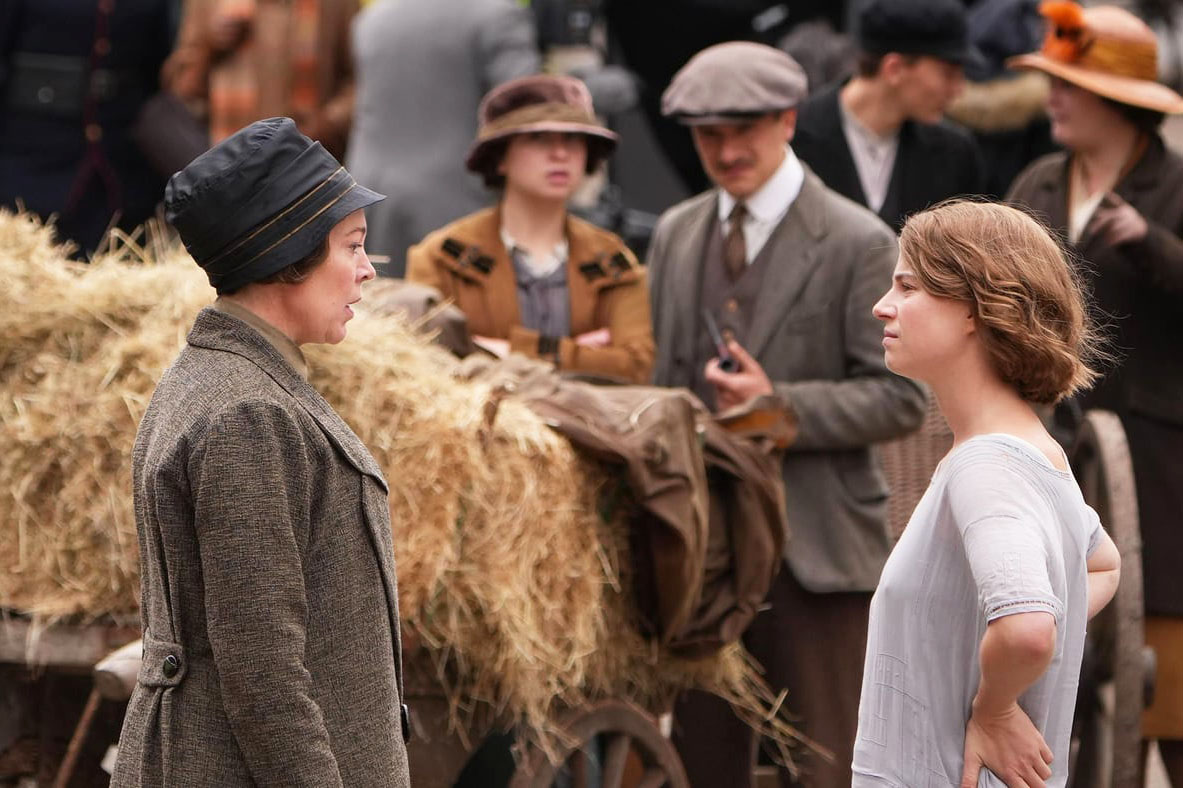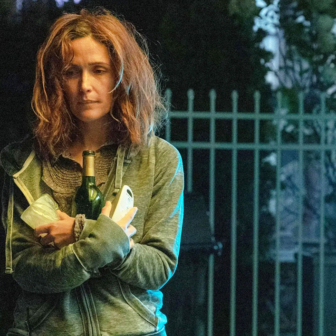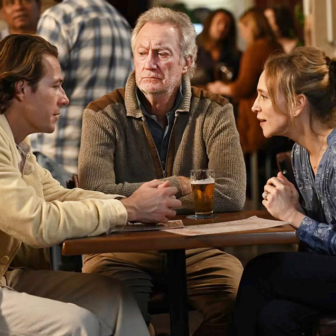We seem to be getting a run of films based on true events and actual people: think of One Life and Killers of the Flower Moon for example. The latest are The Great Escaper and Wicked Little Letters, but they, like the others, also allow for extra characters and events in the interests of dramatic context and tension. I’d prefer them to avoid the claim to be “based on a true story” given that a “story” tends to have a beginning and a series of events leading to a controlled ending, whereas life tends to be messier than that.
What really urged me to see The Great Escaper was the prospect of seeing two great stars in what seemed to be their last film. Michael Caine, now ninety, and Glenda Jackson, eighty-seven at the time of the film’s making, have been two of the enduring figures of British cinema since their key roles in the 1960s — Caine in Alfie, for instance, and Jackson in Women in Love. Both came from very modest working-class backgrounds, both rose to the heights of fame in film, and their roles in The Great Escaper seem almost to encapsulate a sense of a well-lived past and a capacity to deal with the demands of an aged present.
The opening image of the film depicts a sea with wildly crashing waves as an old man watches with his back to the camera. When he turns he proves to be Caine in the role of Bernie Jordan, a real-life veteran of the wartime landings on the Normandy beaches. But we don’t know this until he returns with the aid of a walking stick to the aged-care home where he lives with his wife.
His wife Rene is played by Jackson, and when she hears Bernie enter their apartment she doesn’t want him to see her until she’s finished applying her makeup. This suggests that theirs is a relationship in which this still matters, that it is not just a matter of vanity. The key element of the plot is initiated when a staff member at the “home” tells Bernie he has missed the chance to join an official party of second world war veterans travelling to the Normandy beach where the landing of seventy years before will be celebrated. Rene, knowing what it means to Bernie, urges him to go on his own.
To do this, he has to sneak out secretly from the “home” in the very early morning, catching a taxi to take him to the port from which the vessel, labelled WELCOME VETS, will embark on the cross-channel journey. Bernie may be nearly ninety but he is still prepared to take any risks involved in this enterprise. He meets a likeable elderly ex-airforce officer, Arthur (John Standing), who takes care of him, and the two of them share accommodation in France. Both have painful memories, but Bernie is the film’s chief concern, and the film cuts between his wartime past, shot in subdued colour, and the present, offering flashbacks of Bernie and Rene’s youthful selves.
The film also cuts between Bernie’s venture and Rene’s occupying herself at home, playing gramophone records that recall her youthful days of dancing with Bernie, her flashbacks offering a kind of parallel with Bernie’s. There is also a suggestion of a parallel between Bernie’s receiving the kind friendship of the slightly younger Adam and Rene’s dealings with the kindly staff of the “home,” especially from the youthful Adele (played with warmth and character by Danielle Vitalis).
So the film is preoccupied with the shifts in time and place subtly evoked — and my only reservation is that it would have been good to have more footage devoted to Bernie and Rene together. Oliver Parker’s direction of his stars produces one of the subtlest presentations of age; the result is never sentimental or predictable, and the performances of Caine and Jackson create a sense of whole lives recalling their pasts and how these continue to inform their present. It is not a matter of huge drama but Bernie’s recall of a painful wartime event and Rene’s memories of their making love articulate some of the factors that have underlain their long married lives together.
Wicked Little Letters is based a bizarre set of true events and actual people in the 1920s; as directed by Thea Sharrock from Jonny Sweet’s screenplay, it offers a genre hybrid of crime, comedy and family conflict. Those real events — the sending of some wildly profane letters to people in Littlehampton, West Sussex, in the 1920s — provide the basis for one of the quirkiest and most entertaining films of recent times.
Edith Swan (Olivia Colman) is a prim, conservative unmarried woman, busy with a church group of whist-playing ladies and living with her dominant father, Edward (played by Timothy Spall), and more docile mother, Victoria (Emma Jones). An obscenely worded letter arrives addressed to her: there is of course discussion about who can possibly be the author, and Edward immediately goes off to the police.
The house next door to Edith’s is the home of Rose Gooding (Jessie Buckley), who lives there with her daughter Nancy (Alisha Weir) and her partner Bill (Malachi Kirby). Rose, who is given to wild profanity, claims she is a war widow, and her rough-hewn behaviour makes her a likely suspect as author of the wicked letters. The police, when informed, visit her and arrest her.
The film cunningly builds up the contrast between Rose and Edith, without this ever descending to black and white: rude as Rose seems, Edith appears not wholly to dislike her, whatever their differences. There is also a subtle element of comedy in how the film depicts them, with neither woman proving to be exactly what she may seem to be, given Rose’s background story and Edith’s pious lifestyle.
This is a difficult film to review: it’s hard to say much more about the narrative without being guilty of spoilers. All I can say is that we’re not just concerned with a mystery being solved; there is also a wonderfully comic undertone as the film makes its way towards major revelations about the women superbly played by Colman and Buckley, each creating a persuasive sense of lives that are not all they may seem to be. I’m not sure how closely Wicked Little Letters follows the actual events on which its quirky plot is based, but nor do I greatly care, because overall the film maintains a delicious blend of mystery and mirth. •




